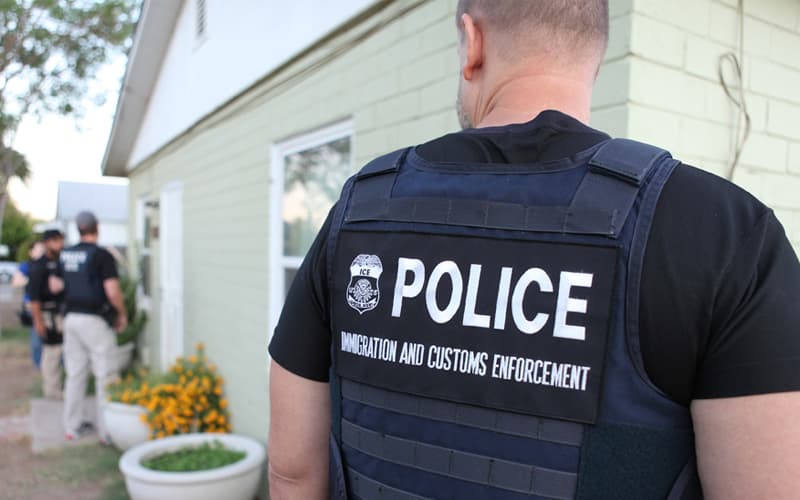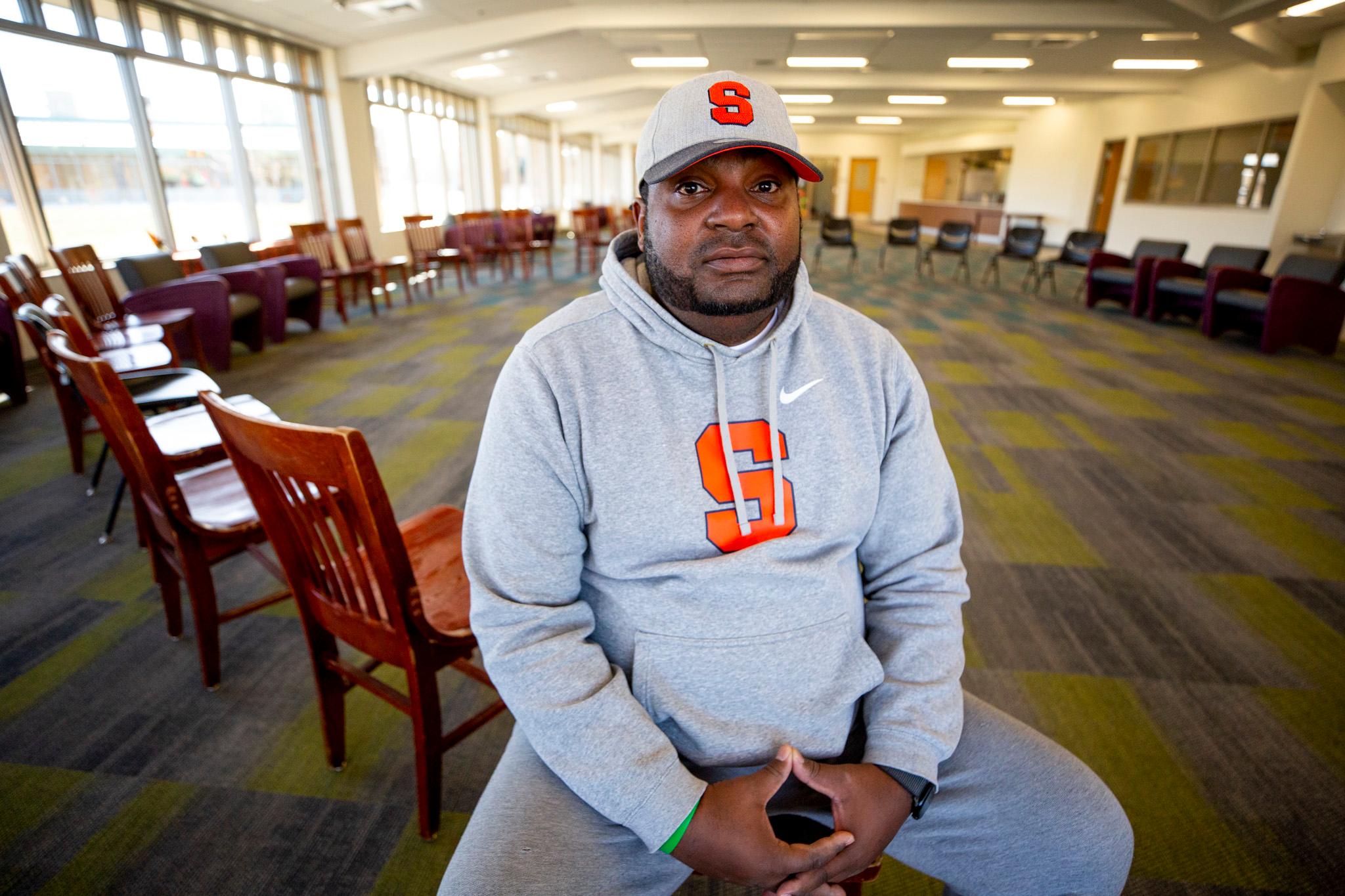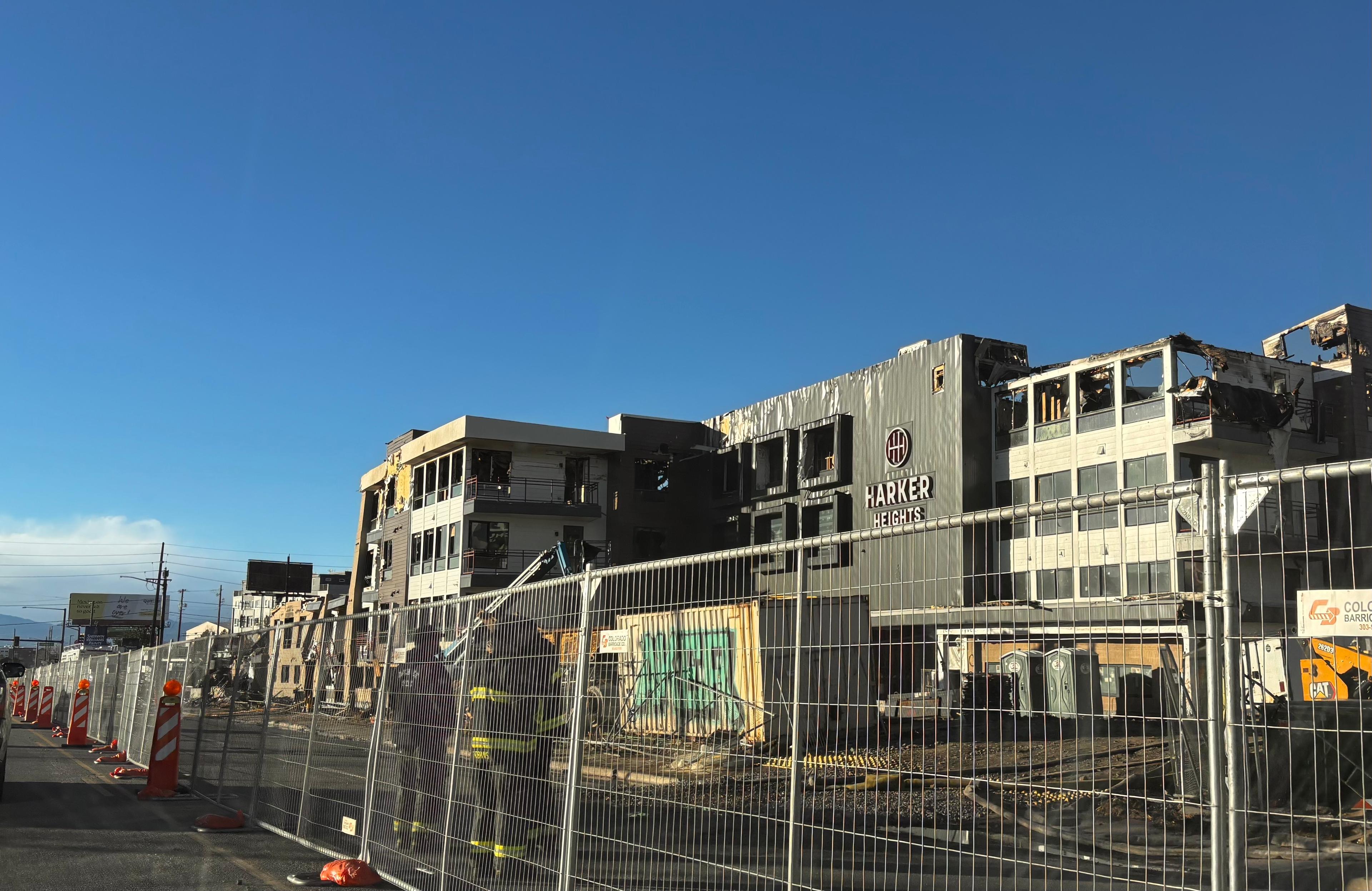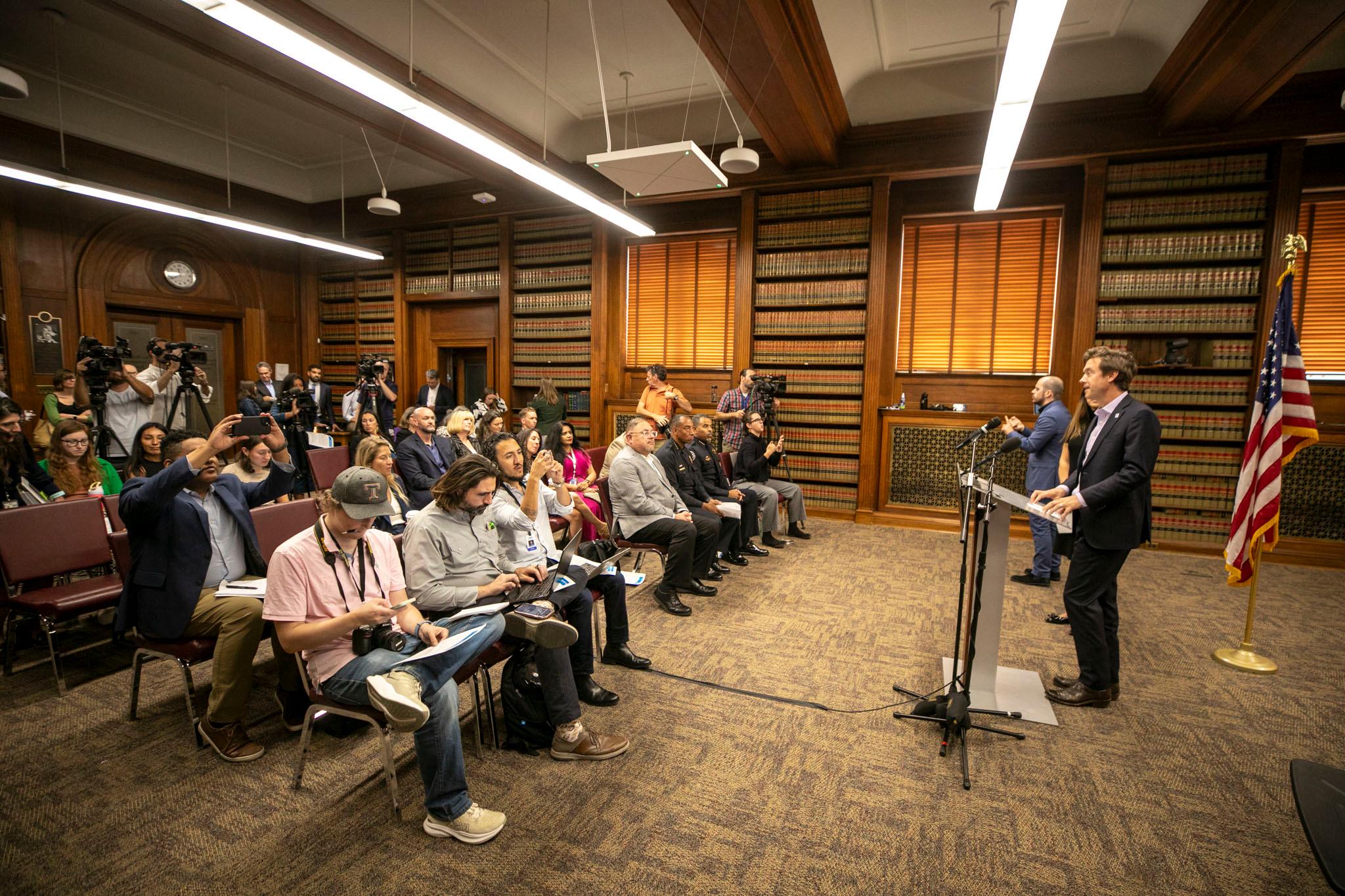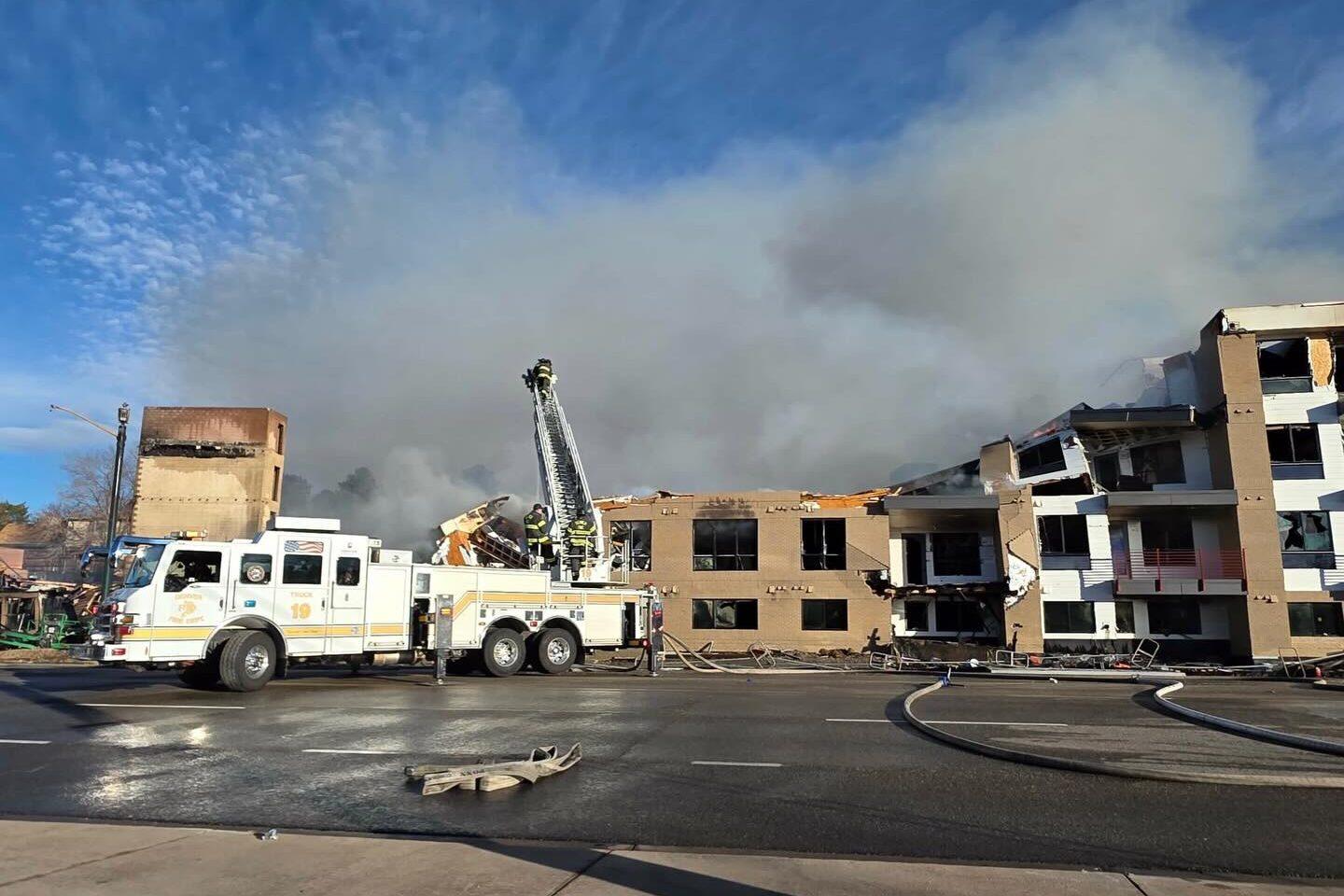Immigration and Customs Enforcement has issued its first report on "declined detainers," a list of times that they asked local law enforcement to hold onto a suspected illegal immigrant in their custody but the agency didn't comply.
Denver is on it, as are Boulder, Broomfield and Weld counties, which is not surprising because Colorado sheriffs generally don't honor these detainers ever since Arapahoe County had to pay damages to a domestic violence victim who was held for ICE even after criminal charges against her were dismissed. (The ACLU of Colorado sent a helpful letter drawing the attention of the state's sheriffs to that case.)
If anything, it's surprising how few entries there are for Colorado jurisdictions. ICE notes that some field offices stopped issuing detainer requests because they were routinely ignored, but all field offices have been ordered to resume the practice. A spokeswoman for the agency declined to say if Colorado was one of those field offices, but she said that in a few weeks to a few months, the weekly register will be more representative of how much cooperation local law enforcement does or doesn't provide. The list also includes times that ICE requested to be notified of the pending release of a suspect but wasn't. The list doesn't distinguish between those cases and detainer requests.
The issuance of this list is part of President Donald Trump's executive order on sanctuary cities and internal enforcement of immigration. One of its provisions was the publication of a registry of crimes committed by immigrants and the jurisdictions that did not help ICE detain those people so they could be deported.
"To better inform the public regarding the public safety threats associated with sanctuary jurisdictions, the Secretary shall utilize the Declined Detainer Outcome Report or its equivalent and, on a weekly basis, make public a comprehensive list of criminal actions committed by aliens and any jurisdiction that ignored or otherwise failed to honor any detainers with respect to such aliens," the order says.
Sarah Rodriguez, the ICE spokeswoman, said the purpose of the list is just to "educate the public" about the actions of local law enforcement.
“When law enforcement agencies fail to honor immigration detainers and release serious criminal offenders, it undermines ICE’s ability to protect the public safety and carry out its mission,” Acting ICE Director Thomas Homan said in a statement. “Our goal is to build cooperative, respectful relationships with our law enforcement partners. We will continue collaborating with them to help ensure that illegal aliens who may pose a threat to our communities are not released onto the streets to potentially harm individuals living within our communities.”
If you click through to read the list, you'll see that there is often a large gap between the date the request was made and the date it was denied. Often it's months. One Boulder case goes back to 2015, and several cases in other states date back to 2014. Rodriguez said that's because agencies don't usually inform ICE they have denied a request. Instead, ICE finds out the person was previously released when they re-encounter the person, either because they're arrested again or because ICE picks them up in a separate immigration enforcement action.
When someone is released from jail, that's public information that anyone can obtain. People might be released because they completed a sentence or bonded out. According to the report, ICE is in the process of reviewing outstanding detainers.
The single Denver case in the report involves a Mexican national convicted of driving under the influence. There are six cases out of Boulder, four of which involve people convicted of assault and burglary and two of which involve people accused -- but not yet convicted -- of drug possession. There are three cases out of Broomfield involving people convicted of DUI and, in one case, forgery. And there is one case out of Weld County involving someone charged with "violation of a court order."
There is not a single national of a European country listed in the report, and the vast majority of people listed are Mexican nationals. Advocates for immigrant rights called the list a piece of "propaganda" and said it promoted a "false narrative" of criminal immigrants, when studies have found that immigrants commit crimes at lower rates than native-born Americans.
"Our Constitution guarantees the right to due process, but over half of the cases referenced in ICE’s report are individuals charged with crimes, who have not been convicted," Denver immigration attorney Hans Meyer said in an email. "Most of the so-called ‘notable criminal activity’ are non-violent misdemeanor charges. ICE’s report is a huckster's attempt to bully local jurisdictions who have passed policies limiting detainers, but those cities should stand proud knowing that they are defending constitutional rights."
Meyer said ICE should comply with the Fourth Amendment -- that would mean getting formal arrest warrants -- if it wants to detain people.
Denver Sheriff's Department spokesman Simon Crittle said he couldn't comment on the specific entry for Denver because the list doesn't include a name or enough detail for Crittle to know in what way the department is accused of not cooperating. Crittle said the department notifies ICE in advance of suspects being released several times a week. That notification came only at the last minute in the case of Ever Valles, an illegal immigrant who was in jail last year on suspicion of auto theft and is now one of the suspects accused in the murder of a man at a light rail station in February. Valles was in jail for several weeks before he bonded out on the previous charge and in the community for several more weeks before the fatal shooting.
Crittle said Denver simply cannot hold people on civil matters, which immigration is, and he said the department needs to focus on local law enforcement.
"Denver does not shield criminals, and we will always honor federal warrants," he said in an email. "We're focused on enacting policies and practices that protect people’s safety and their rights, including the rights of immigrants, while allowing federal authorities to focus on immigration enforcement that removes dangerous and violent felons from our streets. We should all focus on creating a system where federal and local governments respect each other’s respective roles and work together to close the gaps."

